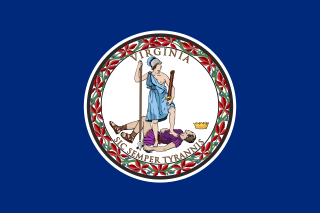Biography
Born in Williamsburg, Virginia, Bowden attended a private school. He studied law. He was admitted to the bar but never practiced. He engaged in banking. He served as collector of customs for the port of Norfolk from September 1879 until May 1885.

Williamsburg is an independent city in the Commonwealth of Virginia, United States. As of the 2010 U.S. Census, the population was 14,068. In 2014, the population was estimated to be 14,691. Located on the Virginia Peninsula, Williamsburg is in the northern part of the Hampton Roads metropolitan area. It is bordered by James City County and York County.

Admission to the bar in the United States is the granting of permission by a particular court system to a lawyer to practice law in the jurisdiction and before those courts. Each U.S. state and similar jurisdiction has its own court system and sets its own rules for bar admission, which can lead to different admission standards among states. In most cases, a person is "admitted" or "called" to the bar of the highest court in the jurisdiction and is thereby authorized to practice law in the jurisdiction. In addition, Federal Courts of the United States, although often overlapping in admission standards with states, set their own requirements for practice in each of those courts.
Bowden was elected as a Republican to the Fiftieth and Fifty-first Congresses (March 4, 1887 – March 3, 1891). He was an unsuccessful candidate for reelection in 1890 to the Fifty-second Congress. He served as again collector of customs for the port of Norfolk. He served as clerk of the United States Court for the Eastern District of Virginia from March 10, 1899, until his death in Norfolk, Virginia, January 22, 1908. He was interred in Elmwood Cemetery.

The Republican Party, also referred to as the GOP, is one of the two major political parties in the United States; the other is its historic rival, the Democratic Party.

The Fiftieth United States Congress was a meeting of the legislative branch of the United States federal government, consisting of the United States Senate and the United States House of Representatives. It met in Washington, D.C. from March 4, 1887, to March 4, 1889, during the third and fourth years of Grover Cleveland's first presidency. The apportionment of seats in the House of Representatives was based on the Tenth Census of the United States in 1880. The Senate had a Republican majority, and the House had a Democratic majority.

The Fifty-first United States Congress, referred to by some critics as the Billion Dollar Congress, was a meeting of the legislative branch of the United States federal government, consisting of the United States Senate and the United States House of Representatives. It met in Washington, D.C., from March 4, 1889, to March 4, 1891, during the first two years of the administration of U.S. President Benjamin Harrison.
This page is based on this
Wikipedia article Text is available under the
CC BY-SA 4.0 license; additional terms may apply.
Images, videos and audio are available under their respective licenses.

John Goode Jr. was a Virginia Democratic politician who served in the Confederate Congress during the American Civil War and then was a three-term postbellum United States Congressman. He was also the acting Solicitor General of the United States.
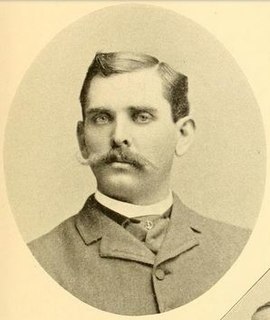
Sydney Emanuel Mudd I was a politician, elected as Speaker of the Maryland House of Delegates (1896) and as a Republican to the United States House of Representatives, at a time of dominance by Democrats in much of the state. He was first seated by Congress in 1890 after it found in his favor in relation to the contested 1888 election in Maryland's 5th congressional district, which was marked by fraud and intimidation.
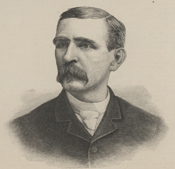
Thomas Henry Bayly Browne was a Republican member of the United States House of Representatives from Virginia's 1st congressional district (1887–1891). He was born in Drummondtown, Accomack County, Virginia. During the American Civil War he served in the Confederate Army. After the war he became an attorney. He died in Drummondtown.

George William Whitehurst is a professor and retired politician who served in the United States House of Representatives from the state of Virginia. He began his career as a professor at the Norfolk campus of the College of William and Mary, which became Old Dominion College in 1962. After serving as Dean of Students from 1963–1968, Whitehurst left academia for a nineteen-year stay in Congress. Upon retiring from politics, he returned to what was by then Old Dominion University, where he currently holds the chair of Kaufman Lecturer in Public Affairs.
Menalcus Lankford was a U.S. Representative from Virginia.

Joseph Thomas Deal was a U.S. Representative from Virginia.

Francis Rives Lassiter was a U.S. Representative from Virginia, great-nephew of Francis E. Rives.
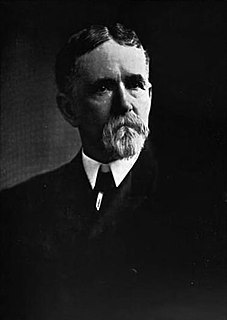
John Lamb was a U.S. Representative from Virginia.

Harrison 'Harry' Libbey was a U.S. Representative from Virginia's 2nd congressional district.

Posey Green Lester was a U.S. Representative from Virginia.
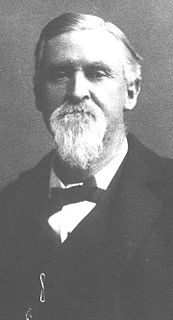
John William Lawson was a U.S. Representative from Virginia.
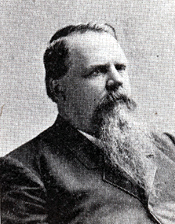
Paul Carrington Edmunds was a Virginia lawyer, Confederate soldier and politician who served in the Virginia Senate and in the U.S. Representative from Virginia.

George Douglas Wise was a U.S. Representative from Virginia, cousin of John Sergeant Wise and Richard Alsop Wise and nephew of Henry Alexander Wise.
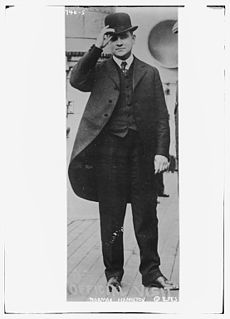
Norman Rond Hamilton was a U.S. Representative from Virginia.

William Elliott was an attorney and politician, serving U.S. Representative from South Carolina.

James Fletcher Epes was a U.S. Representative from Virginia, cousin of Sydney Parham Epes.

Harry Lee Maynard was a U.S. Representative from Virginia.
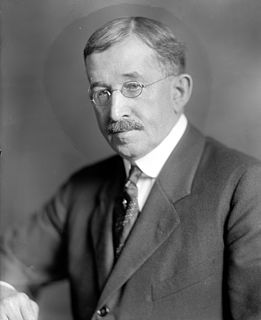
Edward Everett Holland was a U.S. Representative from Virginia.
Edward Carrington Venable was a U.S. Representative from Virginia.

Sidney Parham Epes was a U.S. Representative from Virginia, cousin of James F. Epes and William Bacon Oliver.


